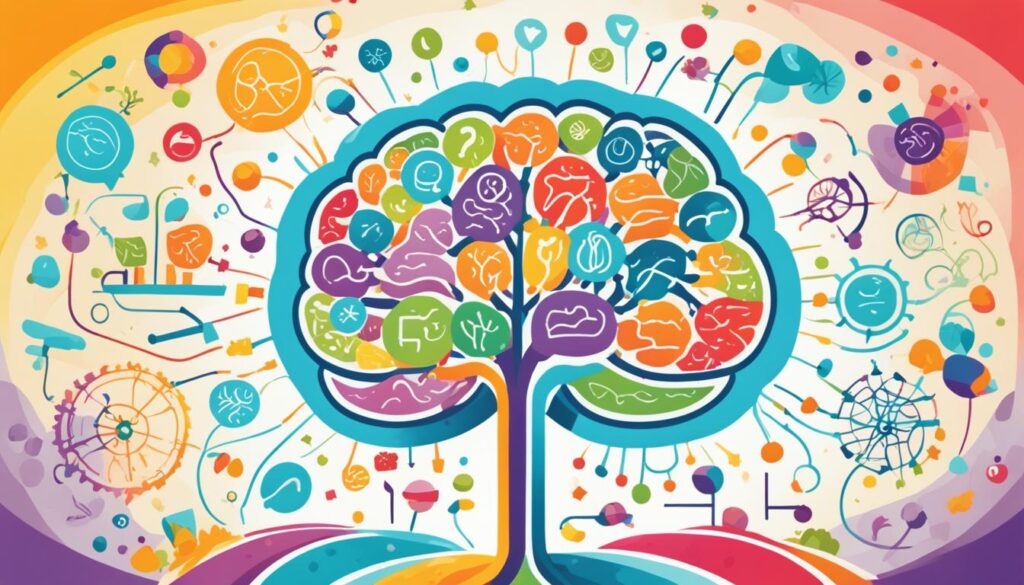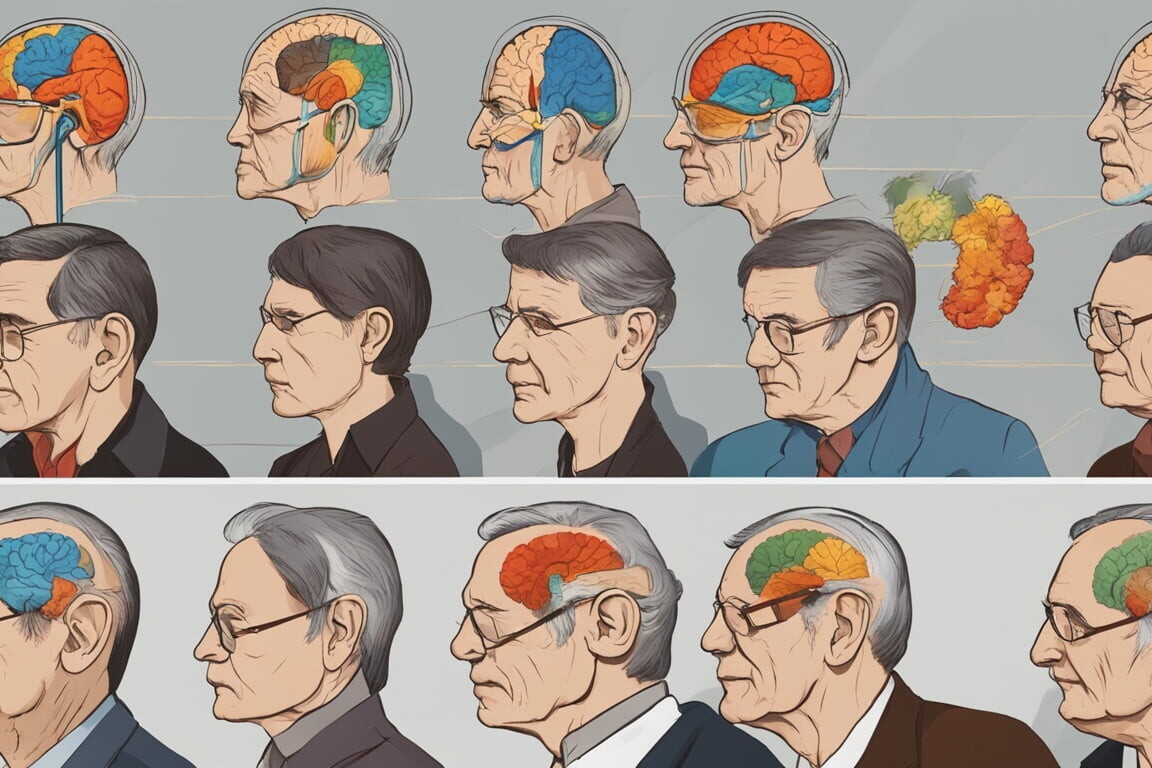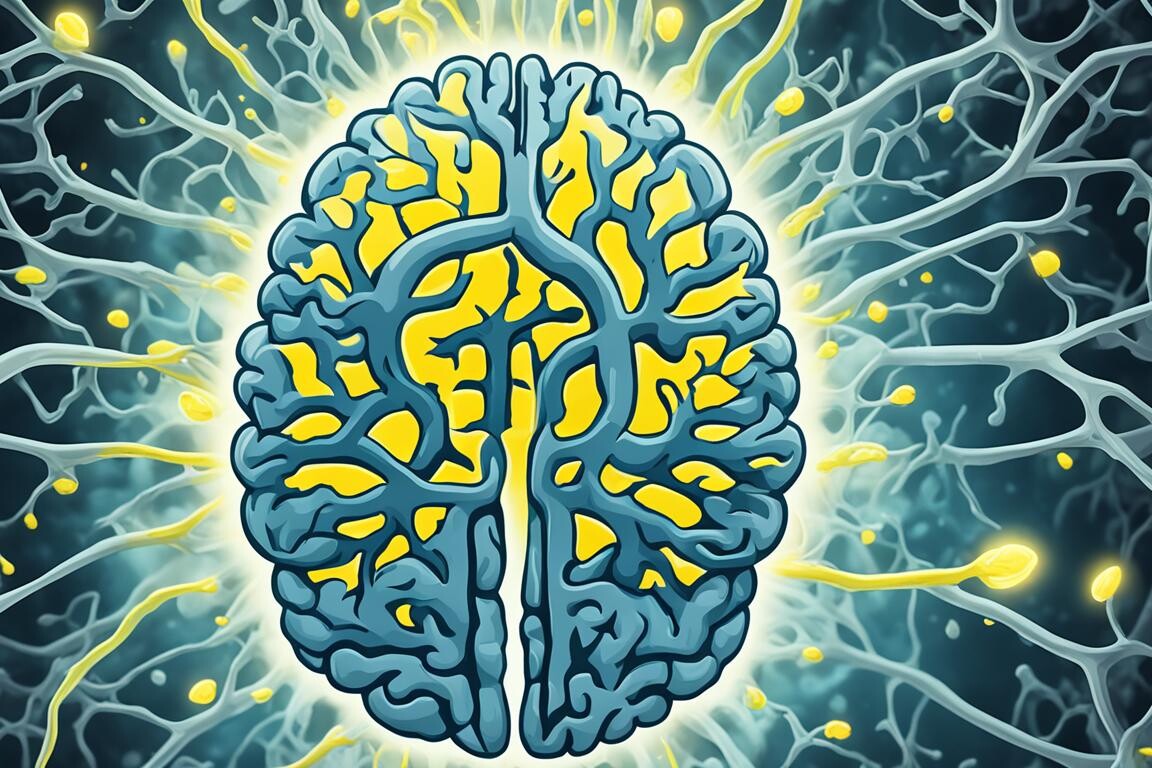As someone who has witnessed the impact of dementia on my loved ones, I understand the importance of exploring advanced dementia treatments. It’s crucial to stay informed about the latest advancements and options available for individuals facing cognitive challenges. By doing so, we can provide the best possible care and support for our loved ones.
In this section, we will delve into the world of dementia treatments, discussing various approaches and therapies that can make a difference. From medications to non-pharmacological interventions, lifestyle modifications, and alternative therapies, we will explore the diverse options that can help enhance the quality of life for individuals with dementia and their families.
Table of Contents
ToggleMedications for Dementia
When it comes to managing the symptoms and slowing down the progression of dementia, medications play a crucial role. In this section, we will explore the different FDA-approved dementia medications and their potential benefits in supporting individuals with cognitive decline.
FDA-Approved Dementia Medications
Currently, there are several FDA-approved medications available for the treatment of dementia. These drugs target specific neurotransmitters, helping to improve cognitive function and memory in individuals with dementia. It is important to note that while these medications can provide symptomatic relief, they do not reverse or cure the underlying causes of dementia.
The most commonly prescribed FDA-approved dementia medications include:
- Donepezil (Aricept®): Donepezil is used for the treatment of mild to moderate Alzheimer’s disease. It works by increasing the levels of acetylcholine, a neurotransmitter involved in memory and learning, in the brain.
- Rivastigmine (Exelon®): Rivastigmine is used for the treatment of mild to moderate Alzheimer’s disease and mild to moderate Parkinson’s disease dementia. It inhibits the breakdown of acetylcholine, thus increasing its availability in the brain.
- Galantamine (Razadyne®): Galantamine is used for the treatment of mild to moderate Alzheimer’s disease. It works by increasing the levels of acetylcholine and enhancing the activity of nicotinic receptors in the brain.
- Memantine (Namenda®): Memantine is used for the treatment of moderate to severe Alzheimer’s disease. It works by regulating the activity of glutamate, a neurotransmitter involved in learning and memory.
These FDA-approved medications can help manage cognitive symptoms such as memory loss, confusion, and language difficulties in individuals with dementia. However, it is essential to consult with a healthcare professional to determine the most appropriate medication and dosage for your specific situation.

Non-Pharmacological Interventions for Dementia
When it comes to caring for individuals with dementia, non-pharmacological interventions play a crucial role in enhancing their quality of life. These interventions focus on providing support and stimulation for cognitive, emotional, and physical well-being. Let’s explore some effective techniques that can make a significant difference in dementia care:
Cognitive Stimulation:
Engaging in activities that stimulate the mind can help slow down cognitive decline and improve mental function in individuals with dementia. Cognitive stimulation exercises, such as puzzles, memory games, and word associations, promote brain health and stimulate cognitive abilities.
Reminiscence Therapy:
Reminiscence therapy involves recalling and discussing past experiences and memories. This technique helps individuals with dementia reconnect with their personal history, fostering a sense of identity and promoting emotional well-being. It can be facilitated through photo albums, music, or storytelling sessions.
Music Therapy:
Music has a remarkable impact on individuals with dementia, triggering memories, reducing anxiety, and promoting emotional and social connection. Whether through live performances or listening to favorite songs, music therapy provides a powerful avenue for self-expression and engagement.
Art Therapy:
Art therapy allows individuals with dementia to express themselves creatively, even when verbal communication becomes challenging. Engaging in art activities like painting, drawing, or collage-making stimulates the imagination and provides an outlet for emotions, fostering a sense of accomplishment and self-esteem.
Sensory Stimulation:
Sensory stimulation interventions involve providing individuals with dementia with sensory experiences that engage their senses, such as touch, smell, sight, and hearing. This can be achieved through activities like aromatherapy, gentle massage, or listening to nature sounds, creating a calming and comforting environment.
Social Engagement:
Social isolation can worsen symptoms of dementia, but fostering social connections can have a positive impact on individuals’ well-being. Encouraging participation in group activities, family gatherings, or support groups not only stimulates the mind but also provides emotional support and a sense of belonging.
Physical Exercise:
Regular physical exercise is not only beneficial for overall health but also has significant cognitive benefits for individuals with dementia. Activities like walking, gardening, or chair exercises can improve balance, motor skills, and mental agility, promoting independence and well-being.
Incorporating these non-pharmacological interventions into dementia care can significantly improve the quality of life for individuals with dementia and provide much-needed support for their loved ones. These techniques nurture cognitive ability, enhance emotional well-being, and promote social engagement, allowing individuals to maintain a sense of identity and purpose.
Lifestyle Modifications for Dementia
When it comes to managing dementia, lifestyle modifications play a crucial role in preserving brain health and potentially slowing down cognitive decline. Making certain changes to daily habits and routines can have a significant impact on the overall well-being of individuals facing cognitive challenges. Let’s explore some lifestyle modifications that can contribute to the management and care of dementia.
Physical Exercise
Regular physical exercise is not only beneficial for cardiovascular health but also for brain health. Engaging in aerobic exercises, such as walking, swimming, or cycling, can improve circulation and promote the growth of new brain cells. Additionally, exercise helps reduce the risk of other health conditions, such as obesity and diabetes, which are known to affect cognitive function. Aim for at least 150 minutes of moderate-intensity exercise per week to reap the brain-boosting benefits.
A Balanced Diet
Nourishing the body with a balanced diet can have a positive impact on brain health. Consuming a variety of nutrient-rich foods, such as fruits, vegetables, whole grains, lean proteins, and healthy fats, provides essential vitamins and minerals that support cognitive function. Additionally, it’s important to limit the intake of processed foods, sugary snacks, and excess sodium, which can negatively affect overall health. Remember to stay hydrated by drinking an adequate amount of water throughout the day.
Mental Stimulation
Keeping the brain mentally stimulated is essential for preserving cognitive function. Engaging in activities that challenge the mind, such as puzzles, reading, learning new skills, or playing musical instruments, can help build cognitive reserve and potentially delay the onset of dementia symptoms. Socializing, participating in stimulating conversations, and joining community groups or clubs can also provide mental stimulation and emotional support.
Social Engagement
Staying socially engaged is vital for maintaining overall well-being, especially for individuals with dementia. Regular interaction with family, friends, and the wider community can help reduce feelings of isolation and loneliness, both of which can negatively impact cognitive health. Participating in social activities, attending support groups, or volunteering can provide opportunities for meaningful connections and social stimulation.
By implementing these lifestyle modifications, individuals with dementia and their loved ones can improve brain health, enhance overall well-being, and potentially slow down cognitive decline. It’s important to consult with healthcare professionals and seek guidance in developing a personalized approach tailored to individual needs and abilities.

Alternative and Complementary Treatments for Dementia
When it comes to managing dementia, alternative treatments and complementary therapies can provide additional support. Many individuals with dementia find these approaches beneficial in managing symptoms and improving overall well-being. Let’s explore some of these alternative and complementary treatments:
Acupuncture
Acupuncture, an ancient Chinese practice, involves the insertion of thin needles into specific points on the body. This alternative treatment is believed to help regulate energy flow and promote relaxation. Some individuals with dementia have reported improved sleep, reduced anxiety, and enhanced cognitive function after acupuncture sessions.
Aromatherapy
Aromatherapy utilizes essential oils derived from plants to promote relaxation and improve mood. The pleasant scents from these oils can help create a calming environment for individuals with dementia. Lavender and lemon balm are commonly used oils known for their soothing properties that may assist in reducing agitation and promoting a sense of well-being.
Herbal Supplements
Herbal supplements, such as ginkgo biloba and turmeric, have gained popularity as alternative treatments for dementia. These natural remedies are believed to have antioxidant and anti-inflammatory properties that may support brain health and cognitive function. However, it’s important to consult with a healthcare professional before incorporating any herbal supplements into a treatment plan.

Music Therapy
Music therapy has been shown to have a positive impact on individuals with dementia. Listening to familiar and comforting music can stimulate memories, improve mood, and reduce anxiety. Music therapy sessions often involve singing, playing instruments, and engaging in rhythmic activities to promote emotional well-being.
Art Therapy
Art therapy provides a creative outlet for individuals with dementia, allowing them to express themselves and engage in meaningful activities. Painting, drawing, and other artistic activities can enhance cognitive skills, promote relaxation, and provide a sense of accomplishment.
| Treatment | Description |
|---|---|
| Acupuncture | Insertion of thin needles into specific points on the body to promote relaxation and improve cognitive function. |
| Aromatherapy | Utilizing essential oils to create a calming environment and reduce agitation in individuals with dementia. |
| Herbal Supplements | Natural remedies with antioxidant and anti-inflammatory properties that may support brain health and cognitive function. |
| Music Therapy | Using music to stimulate memories, improve mood, and reduce anxiety in individuals with dementia. |
| Art Therapy | Engaging in creative activities to enhance cognitive skills, promote relaxation, and provide a sense of accomplishment. |
It’s essential to remember that alternative treatments and complementary therapies should be used in conjunction with traditional medical care for dementia. Consult with healthcare professionals to ensure a safe and comprehensive treatment plan tailored to individual needs.
Conclusion
In conclusion, there is no cure for dementia, but there are various treatments and approaches available to support individuals and their families. Whether it’s through medications, non-pharmacological interventions, lifestyle modifications, or alternative therapies, it’s important to explore these options and find a personalized approach that best suits the needs of those facing dementia.
Staying informed about the latest advancements, connecting with healthcare professionals, and seeking their guidance can provide valuable insights and support throughout the dementia journey. By providing the necessary care and understanding, we can help improve the quality of life for our loved ones with dementia.
Remember, dementia affects each individual differently, and it’s crucial to approach their care with compassion, empathy, and patience. By being proactive in exploring treatment options and offering continuous support, we can make a positive difference in the lives of those living with dementia.
FAQ
What are some advanced dementia treatments available?
There are several advanced treatments available for dementia, such as medications, non-pharmacological interventions, lifestyle modifications, and alternative therapies. These treatments aim to slow down the progression of the disease, manage symptoms, and improve the overall quality of life for individuals with dementia.
What are some FDA-approved medications for dementia?
There are several FDA-approved medications for dementia, including cholinesterase inhibitors (such as Donepezil, Rivastigmine, and Galantamine) and memantine. These medications can help with memory, thinking, and behavior symptoms associated with dementia.
What are non-pharmacological interventions for dementia?
Non-pharmacological interventions for dementia include cognitive stimulation activities, reminiscence therapy, music therapy, art therapy, and multisensory stimulation. These interventions focus on engaging individuals with dementia in meaningful activities and enhancing their cognitive and emotional well-being.
How can lifestyle modifications help manage dementia?
Lifestyle modifications play a crucial role in managing dementia. Regular physical exercise, a balanced diet, mental stimulation through activities like puzzles and reading, and social engagement can help preserve brain health and potentially slow down cognitive decline in individuals with dementia.
Are there alternative treatments or complementary therapies for dementia?
Yes, some individuals with dementia find alternative treatments and complementary therapies beneficial. These may include acupuncture, aromatherapy, herbal supplements, massage therapy, and other approaches. It’s important to consult with healthcare professionals before incorporating these treatments into a dementia management plan.
What should I do to support my loved one with dementia?
Supporting a loved one with dementia involves staying informed about the latest treatments and approaches, connecting with healthcare professionals, and providing the necessary care and support. Understanding their needs, creating a safe and supportive environment, and being patient and compassionate are also crucial in their dementia journey.
About The Author

Medically reviewed by Dr. Chandril Chugh, MD, DM (Neurology)
Board-Certified Neurologist
Dr. Chandril Chugh is a U.S.-trained, board-certified neurologist with expertise in diagnosing and managing neurological disorders, including migraines, epilepsy, Parkinson’s disease, and movement disorders. His clinical focus includes evidence-based neurological care and patient education.
All content is reviewed for medical accuracy and aligned with current neurological guidelines.




